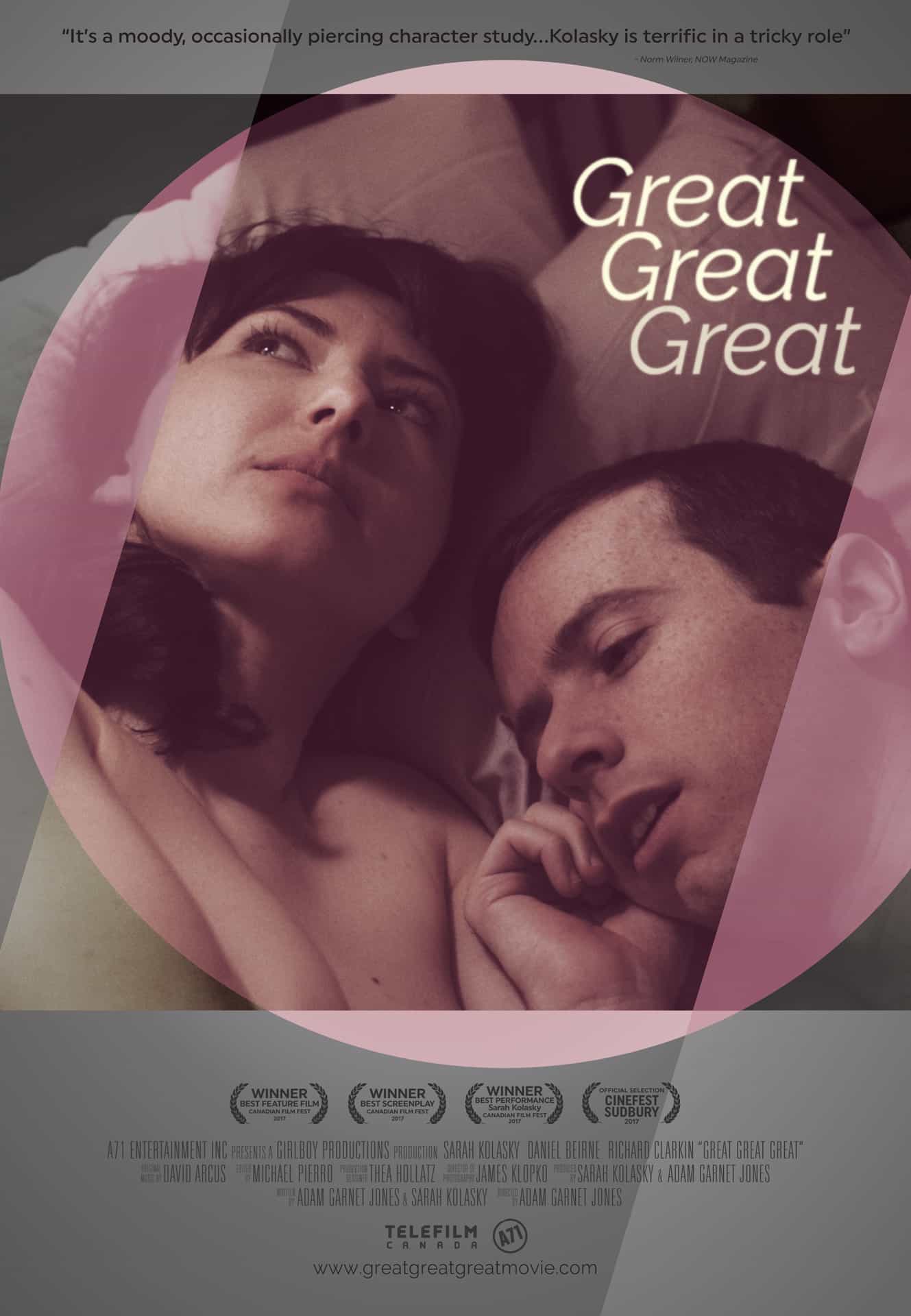Great Great Great is a movie that expresses what happens when we don’t express ourselves. Lauren (Sarah Kolasky) and Tom (Dan Beirne) have been together for five years. They seem compatible enough, with their fair share of affection and inside jokes. Like what happens to many couples in their early thirties, however, Tom and Lauren’s relationship has fallen into a bit of a rut.
Rather than talk about their stagnant relationship in a healthy way, our protagonists do what most people do: they decide to get engaged instead. No, this is not an unusual story. Yes, you’ve probably lived it yourself or known someone else who did. But the banality of its subject matter is precisely what makes Great Great Great, well, great. The film confronts us with the ugly relationship truths we often try to gloss over. It’s about the shameful parts of our relationships we do not share on Facebook or Instagram. It captures the barbs and the snarky glances we don’t upload for posterity, lest all our friends realize our lives aren’t actually perfect.
Directed by Adam Garnett Jones, and co-written by Jones and his leading lady Sarah Kolasky, Great Great Great presents a nuanced portrait not just of relationship drama but also the overall experience of being an educated Toronto thirty-something in an era where a university degree is no longer a guarantee of success or financial security. Lauren is a wildly qualified woman with graduate education in engineering. Sadly, however, Lauren’s workplace does not appreciate her talents, because she’s still plugging away as an executive assistant rather than getting promoted. Tom’s career isn’t fairing well either; he’s an urban planner who can’t seem to find a permanent position in today’s competitive economy. He claims to be seeking a steady job, but he spends a lot of time day drinking while playing Lego instead.
Reflecting on the state of her adult life, Lauren asks herself, “Could I do better?” The movie deftly illustrates how this open-ended question is, in fact, a trap. When Lauren poses it to her best friend, the wise Nikki responds, “Better how?” Indeed, the stumped Lauren cannot think of anything substantive to say in reply. It’s a moment so relatable, you may cringe with embarrassment. In truth, “Can I do better?” is a vague, all-consuming query that can distract us from improving – and appreciating – the lives we do have.
With references to co-working spaces, interminable job searches, and basement apartments on Roncesvalles that rent for $1150 a month, this movie may as well be about my neighbours (or me, if I’m being honest). This realism goes a long way (the enemy of any relationship movie is insincerity). What really makes this Canadian film so realistic, however, are the raw performances of the leads, a loving couple whose main problem is that they don’t talk about their issues. Anyone who’s ever been in a long-term relationship will likely identify with Tom and Lauren’s awkward silences and the lies they tell one another when the right words fail them. Their flawed vulnerability is what makes these characters loveable and unlikeable, both at the same time. Great Great Great sort of feels like it was made with found footage from your best friend’s breakup.
If I have any real problems with this movie, it’s that it’s a little too real at points. But that’s probably a good thing. The best cinema is there to entertain us, yes, but it also challenges us to see things we might otherwise not have seen. And relationship angst is one thing many people repress and ignore. So grab your partner or a good friend, and go see Great Great Great. See it not just because it’s well written and well acted, but because you may see yourself in it.
PS. Great Great Great has been extended at the Carlton until October 19, 2017! GO!




 Follow Us On Instagram
Follow Us On Instagram
